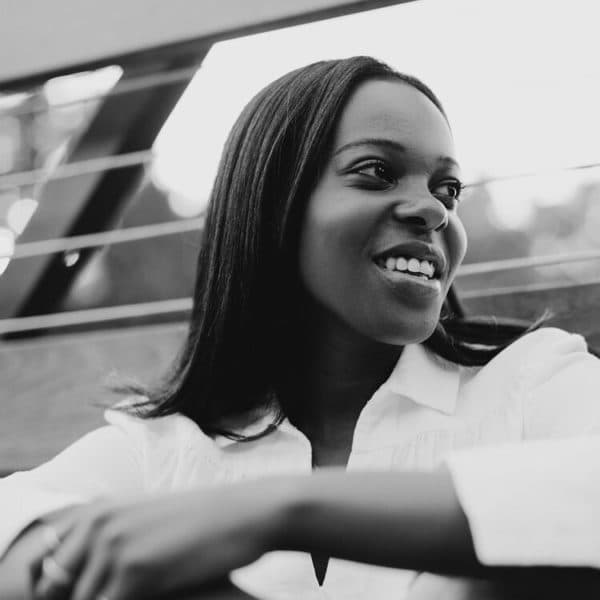Advertisement
Skate collective LonelyBones is making space for community in the sport
Resume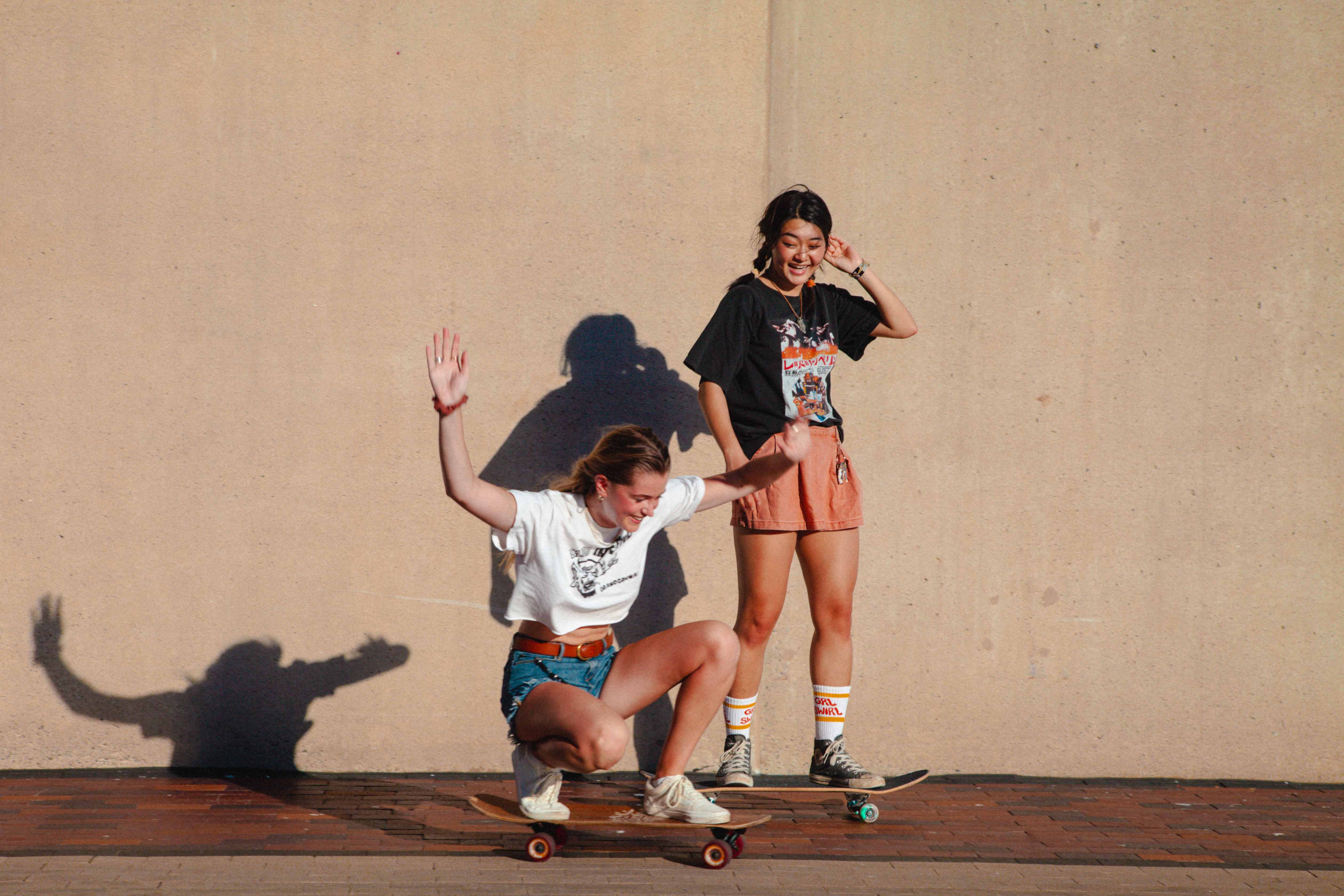
Under a canopy of trees, skateboarders from all walks of life were sprawled out in the grass on a hot June day. Groups of young people rolled up to Cambridge's JFK Memorial Park on skateboards and sat side by side as their friends, new and old, laced up their roller skates. A DJ spun a youthful mix of indie music and hyper-pop, and there was an undeniable buzz in the air. People have come from all over Greater Boston to take part in the “Rainbow Rollout,” hosted by LonelyBones Skate Co., a skateboarding collective started in 2020 by 23-year-olds Rayven Tate and Claire Lee. Attendees rode up Memorial Drive and back to the park, where music, snacks and a raffle took place.
As the entrance of the park began to fill up, Lee grabbed a megaphone and welcomed the group. Then, announced a disclaimer, “For anybody who's worried about pace or anything, we’ll go really slow. If you ever feel overwhelmed, we have plenty of marshals.” The people there weren’t pro skaters, and that’s the point. Lee and Tate created LonelyBones because they felt there wasn’t room in skateboarding for people like them: young women of color who were just starting out. In doing so, they ended up tapping into something much deeper.
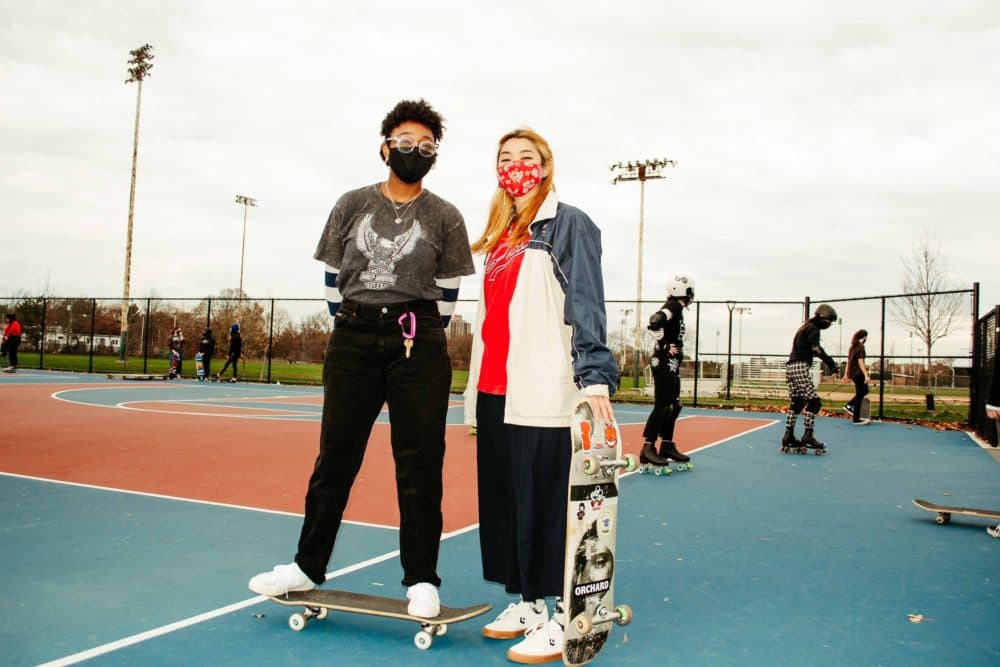
Skateboarding exploded in the aughts, and oftentimes, rebellious young men were the face of it. However, in recent years, that face has been changing. Even popular culture has caught on. “Skate Kitchen,” a 2018 film about an all-girl skate group in New York, was well received by critics and viewers alike. It struck a chord in the zeitgeist and received a spin-off HBO show called “Betty.” Whether or not culture mirrors reality can be argued. But in this case, it seems that the reality of a changing skate culture is in lockstep with what we see on our screens. Lee and Tate’s club for people on the margins of popular skate culture is part of that. With LonelyBones, the two founders are helping to solve the problem of intimidating and sometimes unwelcoming skate park experiences.
Lee, a New Jersey native and recent Northeastern University graduate, grew up snowboarding and surfing. She was always into active sports and felt like skateboarding would be a logical new sport to try. But at the same time, the skateboarding culture she grew up with wasn’t one that seemed open to people that looked like her. “I think something about skate culture is a little bit more exclusive,” she explained. And growing up as a child of South Korean immigrants, the sport felt impenetrable for her.
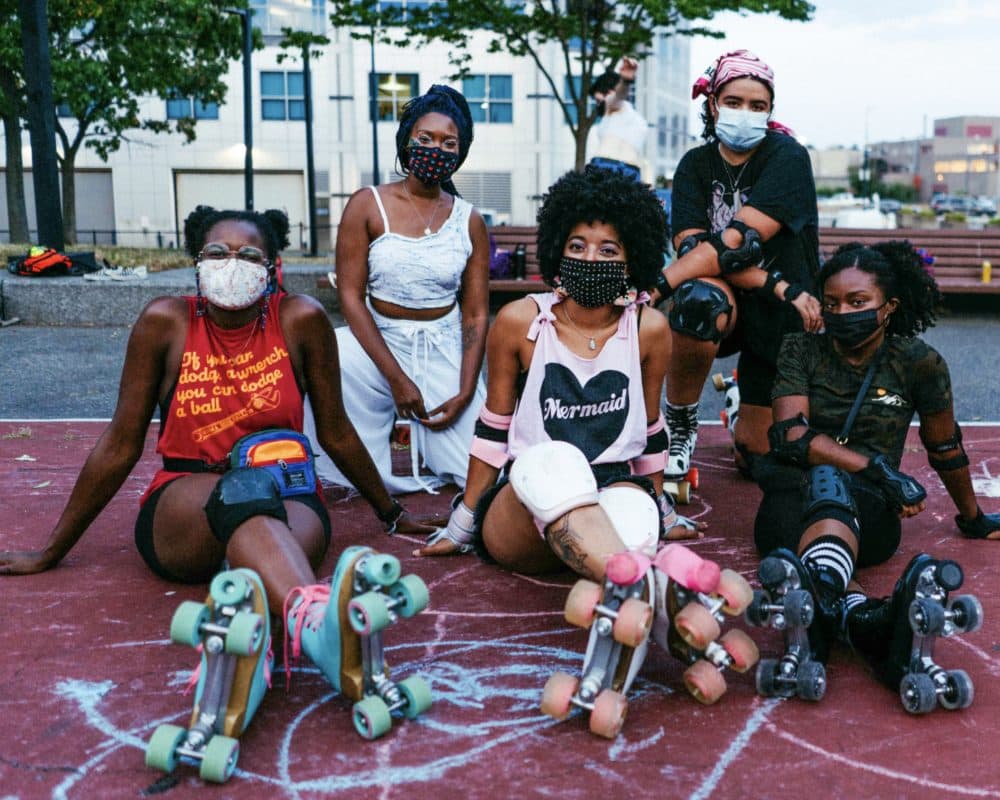
When Lee met her boyfriend, a skateboarder himself, a new world opened up to her. For Lee, he became a bridge into a world she wanted to be a part of. He showed her the ropes, and she fell in love with the sport.
Tate, who is from Texas and also a recent Northeastern University graduate, felt similarly. She was drawn to the culture of skating — especially the fashion after growing up in private schools with uniforms. When searching for a style of her own, she found the aesthetic interesting. As lockdown ordinances came down across the world, she decided it was the perfect time to learn. But she didn’t know where to start.
Little did Lee know the time spent skating with her boyfriend was essential to the creation of something that would mean so much to so many. The beginning of LonelyBones, like many happenings of Gen Z, started with a DM. “She posted a video of her doing an ollie or something,” said Tate. Everyone had been sent home from Northeastern due to the pandemic, and Tate decided to respond to Lee’s post. “When I get back, can you please teach me how to skate?” she asked. Then, the two hatched an idea. Maybe they could start a skateboarding club. But they weren’t sure if other people would be interested.
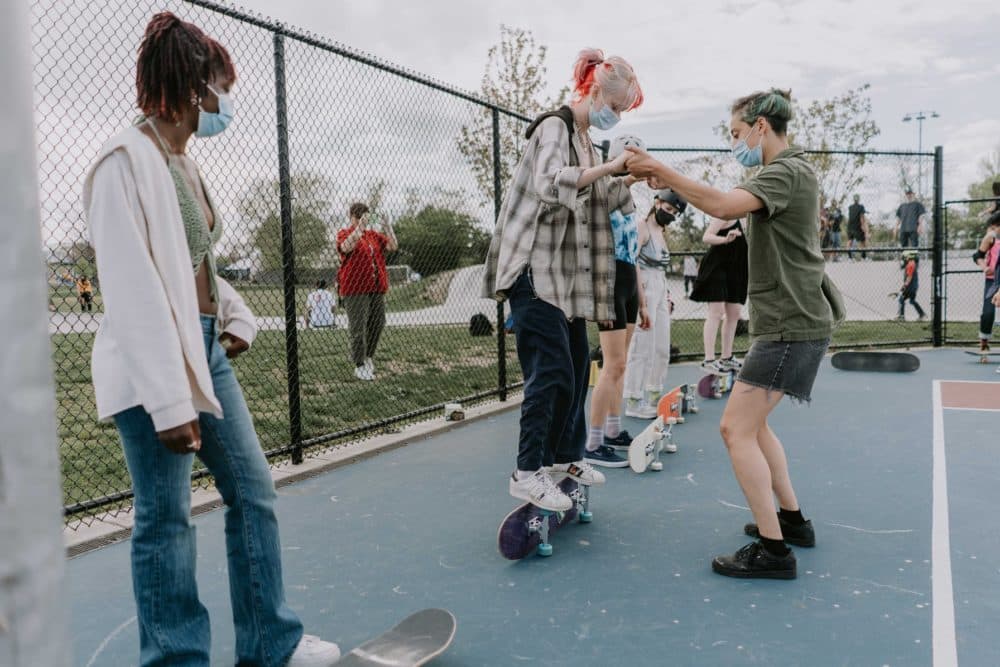
Lee and Tate posted on Northeastern Facebook groups and created an Instagram advertising their first event. “I think 60 people came to the first one,” said Tate. The two founders were shocked. Most of the people who showed up were strangers to each other, but Lee said it was immediately warm. “I think it was comfortable because these people had been feeling the same way we had felt for so long that the event was sort of a relief,” said Lee. The two founders have been hosting meetups ever since.
LonelyBones found itself at the intersection of post-grad blues, pandemic boredom, and a real hunger among people to pick up a new skill. The collective is not exclusionary, but they are focused on maintaining a space where women, gender nonconforming, disabled and trans skaters can feel comfortable. They host events a few times a month and at the moment are hosting their first summer rollerskating camp for beginner inline and quad skaters. The camp, like all LonelyBones' events, is entirely free. In the summer, attendance hovers anywhere from 60 to 100 people. “The group runs itself, in an energy way,” said Lee. This is one of the many things that makes the group so unique.
Positive energy is hard to cultivate artificially, and it was palpable at the event at JFK Memorial Park. Alana Persing, a Northeastern graduate from New York, said that the collective has helped her feel more at home. “There are fellow Latina women here. And anyone who just feels like they haven't had a home,” said Persing. “I feel like we were kind of outcast from this type of activity for no real reason.” Many of the attendees said that at traditional skate parks, there is pressure to show up and prove yourself. At LonelyBones events, Persing explained, that’s never the case.
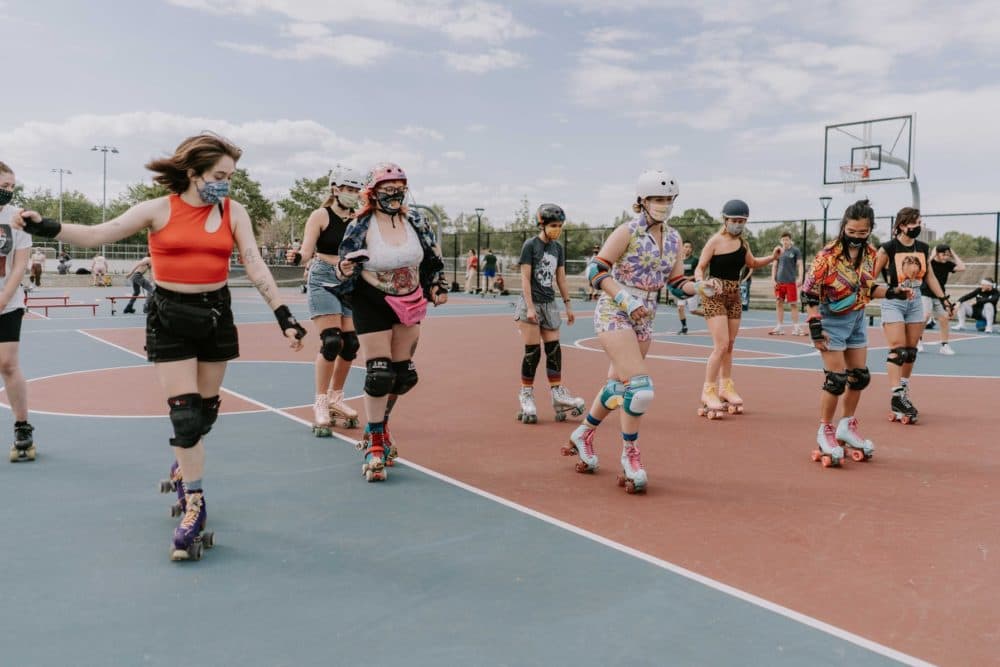
Community is at the center of LonelyBones, and skateboarding is just the vessel. Lee gets choked up recalling people who have told her that they make real friends at these events. This has really resonated with young people in Boston. It’s a strange time as major cities are easing their way out of peak pandemic restrictions, and on top of that, many of Lee and Tate’s peers are recent college graduates. “We just want to be the starting point, an introduction to skating and community building and life, honestly,” said Lee.
At these gatherings, people making friends can be seen in real-time. After all the skateboarders returned from their ride up Memorial Drive, Matt Salomon and Nicole Zhao sat next to each other on the curb, chatting. They looked like old friends. But they were far from it. “I was just actually sitting across from Matt, and I was like, ‘Hey, let's be friends,’” said Zhao. Salomon laughed and explained that it’s one of the few events of its kind where the point is to be a part of a community. “Even if you have a short conversation with someone, it feels enjoyable and not awkward,” said Salomon.
Zhao explained that if you get the courage to go to the skate park, but nobody there looks like you or wants to hang out with you, it’s easy to feel discouraged. LonelyBones is unique in the sense that it makes you feel like this activity can be for you too. Here, everyone wants to hang out with you. “We started it, but it's community-centric, and we really want everyone to be able to take up space here,” said Tate.
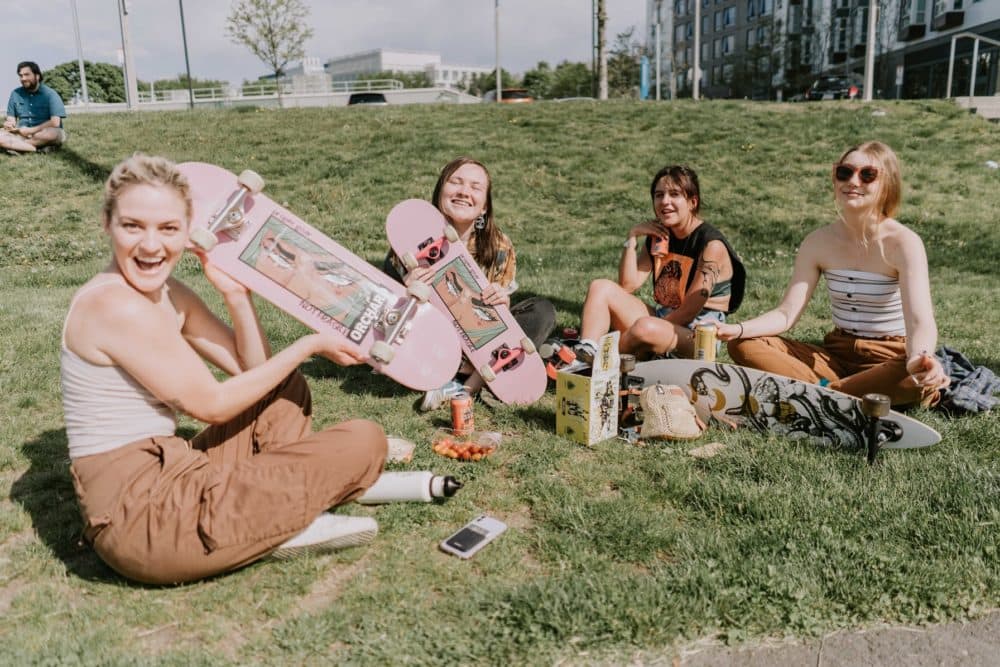
Frequent attendees take that message to heart. When Julia Clarin, a graduate student at Northeastern, first started skateboarding a year and a half ago, someone came over to her in a skate park and told her about LonelyBones. Being able to learn with a supportive group of like-minded people has been important for her as a skateboarder and as a Boston transplant. Clarin says that if she ever sees someone that seems intimidated or alone at a skate park, she returns the favor by inviting them to skate with LonelyBones. "That person that reached out to me was so meaningful," Clarin said. "So, I want to be that person for others."
Going forward, Lee and Tate want to focus on building up their impact, especially on young skateboarders. They hope that the collective will be able to provide scholarships for higher education at some point. The two also want the collective to be a place where young skaters who don’t see themselves represented can look to. “If I saw somebody who looked like me skating when I was a kid, I would have probably started skating a lot sooner, and it probably would have affected other parts of my life, too,” said Lee.
The two founders want people who feel outcast — for whatever reason — to come out, grab a board, and take up space.
This segment aired on July 28, 2022.
